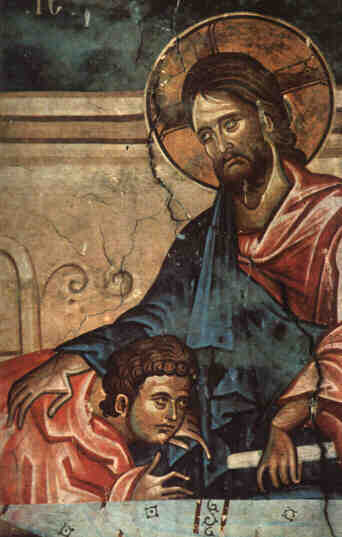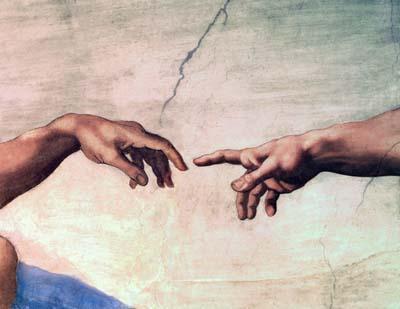
Jesus and the Beloved Disciple
It’s Gay Pride Week, which makes it an especially good time to bring bailing buckets to the leaky boat of fear and intolerance.
Frye many times uses the term “homosexual” to describe the Jesus of the gospels, which makes sense archetypally because he is the second Adam who must redeem our fallen sexuality, including the always problematical subordination of women. He therefore consorts with men and has a “beloved disciple.” This is part of the “Eros Regained” aspect of salvation, the return to innocence of our sexuality (that is, sexuality without shame rather than suffused with it), the pinnacle of which is the restoration of the female. Frye in Notes 52:
Eros Regained starts with the homosexual refined Jesus lying on the bosom of a male beloved disciple, trying to get away from his mother but still so hung up sexually that he insisted his father was not his father and that his mother was a virgin, rescuing a bride symbolically but saying “don’t touch me” as his last words to a woman. This is the first phase of [Robert] Graves’ sequel: the mother-son one, where the son has to be “pure” to stay away from the Oedipal situation . . . I think the refined pure youthful Christ who’s been such a pain in the ass to later ages goes with the perversion of his teachings into a Mother Church. If I’m right about the Virgin as (this also seems to be Jung’s view) the glorified creature, or Man as the fourth person in the Trinity (except that it’s Woman), the Catholic cult of the Virgin is really a kind of narcissism.
What this ultimately means is that the restoration of Eros completes the resurrection of love where even the sexes become interchangeable, and, as with the Angels in Milton’s Paradise Lost, sex itself becomes interpenetration where “obstacle” they “find none / Of membrane, joint or limb” (8: 625-6). Moreover, if Christ is the bridegroom and the Church his bride, then all of humanity is female at the moment of salvation.
So maybe we can throw in transvestism as also doing God’s work.
